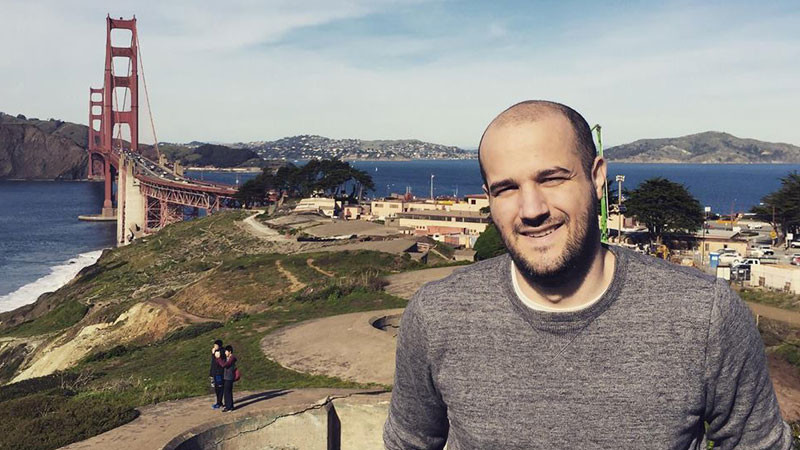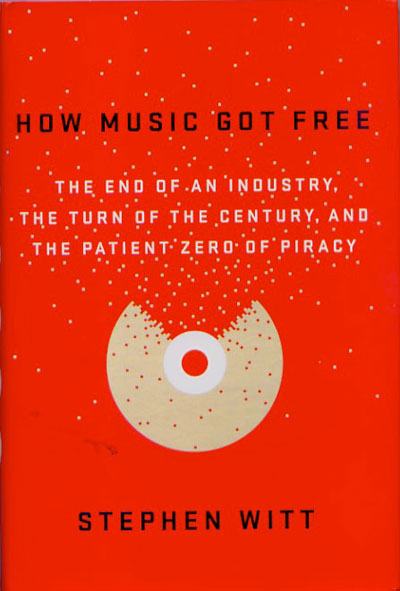One of them was Karlheinz Brandenburg, who began as a grad student working for the Fraunhofer IIS and who eventually led the crew who created the MP3 file format. The marketing team at Phillips eviscerated his business model, and marginalized his superior product. Brandenburg was left to license his work wherever he could, even giving it away.
Witt’s “patient zero” was even more unprepossessing. Benny Lydell Glover started out as a temp working on the line at a CD manufacturing plant in Kings Mountain, North Carolina, living with his girlfriend in a trailer behind his parents’ house. As Witt writes, “his favorite musical genre was rap, his second favorite was country, and his lifestyle was a mash-up of the two.”
But Glover also had a love for computers. He got himself on the internet early, and found his way into chat rooms where teenagers with names like Kali had set up secret sharing sites with thousands of albums, video games, videos — anything that could be broken down into ones and zeros. Glover, willing to leak albums before their release from the CD manufacturing warehouse, proved to be an ongoing gold mine for the file-sharing sites. (The New Yorker published Witt’s article on Glover in April.)
It doesn’t matter if you think you know what happened next, because Witt weaves a ripping yarn, from the tattered rags of the music industry to the world we know today. Brandenburg’s original impulse for creating the MP3 format was to create a “digital radio jukebox”; he had Spotify, Tidal, and Apple Music in his sights long before such streaming services became ubiquitous.
 Not surprisingly, Witt has some smart and not so happy news for those services as well. With his combination of humor, insight and storytelling skill, he’s a must-see when he’s town, and especially if he decides to train that laser-like sensibility on your business model. “Look upon your works, ye mighty, and despair,” indeed.
Not surprisingly, Witt has some smart and not so happy news for those services as well. With his combination of humor, insight and storytelling skill, he’s a must-see when he’s town, and especially if he decides to train that laser-like sensibility on your business model. “Look upon your works, ye mighty, and despair,” indeed.
I caught up with Stephen Witt via email to ask him about writing the book — and about the possibility of seeing it pirated online. (You can also listen to my audio interview with Witt here.)
Your book describes a collision of technical and social visionaries, none of whom had great social skills. How did you go about researching and interviewing players who had trouble expressing themselves?
I had to re-draft the portions explaining the origins of the mp3 many times. The German engineers in particular were difficult; they all spoke perfect English, but they used very technical language, and objected to any imprecision in description. Fortunately, I had taped many of these interviews, so I could play them back as needed. With time, I was able to simplify the story to three points: 1) that the mp3 worked by taking advantage of inherent flaws in the human ear, 2) that inventor Karlheinz Brandenburg really was the key intellectual force behind the thing, despite his modest attempts to deflect credit, and 3) that it was an almost total commercial failure, until the pirates got their hands on it!
We’re accustomed to stories where “Follow the money” provides an easy through line for “solving the crime” or unraveling the nefarious netherworld. Was that the case with this story, and if not, how did you unearth the unconnected and determine how one life touched another?
In this case, the FBI had done a lot of the work already. I pulled the files on nearly 100 piracy prosecutions in the course of writing this book; I also was able to obtain access to some of the FBI’s internal memoranda, via the Freedom of Information Act. The other thing that really helped was the pirate’s own bureaucracy! For a shadowy network of digital outlaws, they kept very good records. There’s a number of hobbyists who now work to archive and preserve this stuff.
The initial intention of the inventors of the MP3 is only now being realized as so-called streaming services come online. Have the creators of these services researched what happened and how in order to foresee future potential perversions of their intent that may bring about their demise?
Streaming presents an elegant solution to the problem of piracy-in fact, it was Brandenburg’s original purpose in creating the mp3. Since the streams originate from centralized servers, under corporate oversight, it’s much easier to police their content. Of course, pirate streamers exist too, as many people who watched the recent Mayweather-Pacquiao fight know. But it’s harder for them to reach scale.
Has your experience researching and writing the book brought you to believe that there is a means of policing music and other digital entertainment? Coming back to its origins, is the solution technical, social or impossible?
The solution is technically possible; we’re watching it unfold right now. Decisions made in the early days of the Internet gave the average user a tremendous amount of power. The IRC underground where digital piracy originated was a home-brew affair-average people sharing information without oversight. That enabled a lot of wonderful things, but it was terrible for rightsholders. So, for a long time, technology and copyright were in opposition; I’d say, though, starting around 2007 or 2008, there was a shift.
Now, the interests of rightsholders and technologists are aligned, and the goal is not to empower the user, but to extract value from them. Today, most Internet content is hosted in corporate libraries, with robots scanning uploaded files in search of infringing content-both Youtube and Soundcloud have such systems. Megaupload, by contrast, refused to police its users’ activity; now its founder Kim Dotcom is facing jail time.
Have you considered posting your book online? If it were to happen, how would you feel?
I won’t do it myself, but there’s already a large number of requests for it in the torrent underground. I suspect it will be available within minutes of the e-book going on sale. I’m cool with that.


 Not surprisingly,
Not surprisingly, 
